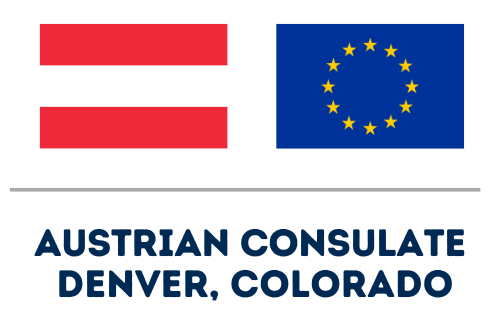From Austria to America: What to Expect with Culture & Language
Guest Blog from Angie Wuelling*
Traveling or moving to another country can be inspiring, invigorating...and also intimidating. Two of the biggest challenges that people face are dealing with differences in language and culture. As a bilingual speech-language pathologist who loves to travel, I have worked with many people who have backgrounds different than my own. From my unique perspective, here are some of the cultural and linguistic differences that Austrians might experience in their professional and personal lives.
Cultural Differences between Austrian and American Workplaces
Austrians should expect to encounter some definite cultural differences in the American workplace. I find it helpful to use the free “Country Comparison” tool from Hofstede Insights, which provides consulting, trainings, and certifications regarding differences in workplace cultures:- “Power Distance:” Americans tend to have a greater distance between superiors and employees. In Austria, power is distributed more equally among superiors and employees.- “Individualism:” Austria and America are both individualistic societies but America has a much higher score, reflecting our “loosely-knit society” in which we tend to focus on ourselves as individuals and our immediate families. In our workplace, Hofstede Insights notes that we value employees who are “self-reliant and display initiative.”- “Long Term Orientation:” America is considered a “normative society” that prefers “time-honoured traditions and norms while viewing societal change with suspicion.” Austria has a higher score in this dimension, making it a more pragmatic culture that prepares for the future by changing its traditions.
Accented English
As Austrians work in the US, some might find that Americans have a difficult time understanding their accented English. If someone desires to reduce his or her accent in order to be better understood, consider contacting a speech-language pathologist, such as ChitChat Therapies. We provide individualized accent modification programs.
Raising your Children Bilingual in the US
Bilingualism is much more prevalent in Europe than in the US. Given Austrians’ familiarity with bilingualism and multilingualism, many readers likely know this information. However, it is very important to remember that learning more than one language does NOT cause language delays or disorders. It also does NOT cause confusion or additional difficulties for people with disabilities. In fact, bilingualism provides tremendous cognitive and linguistic benefits.Unfortunately, many myths about bilingualism still exist in America, even among healthcare and educational professionals. Foreign visitors shouldn’t be surprised if they hear people say that children “get confused” when they are learning more than one language, or if someone encourages an Austrian to stop speaking German at home. There is no research supporting these opinions. Everyone can learn more than one language, even a child who has a delay and only speaks a few words. The best thing that parents can do for their children is to continue speaking their native language(s) at home. It’s necessary for children to have a very strong first language that they can build additional languages onto. Learning their families’ native language(s) also provides a cultural connection to their family and roots. A common saying is that “a loss of language is a loss of culture.”Although bilingualism doesn’t cause delays or problems, children who are immersed in a foreign language often demonstrate “normal phenomena” that might be interpreted as language delays. For example, many children who attend school in a new foreign language go through a “silent” or “nonverbal” period. Since they do not talk much at this stage, teachers and other professionals might wonder if the children have language delays.If a parent has questions or concerns that their child is not learning or using German and/or English like other children their age, please contact ChitChat Therapies for a free phone or email consultation. We are happy to answer any questions, and we provide bilingual speech-language evaluations and therapies.
Gute Reise!
People travel the world to explore vibrant cultures, exotic cuisines, and different languages—not to experience more of the same. However, I always find it inspiring and reassuring to learn more about languages and cultures before I travel abroad. With these tips and information, Austrians can be better prepared to experience American culture, both at work and with their families.
Angie Wuelling, MA, CCC-SLP, is a bilingual speech-language pathologist and the owner of ChitChat Therapies. Her Golden, Colorado-based private practice delivers speech, language, and feeding services for children, as well as speech therapy and accent modification for adults. ChitChat Therapies also partners with families and schools to offer bilingual speech-language evaluations and therapy. For more information, visit www.chitchattherapies.com.
*This is a guest blog provided by Angie Wuelling. The Austrian Honorary Consulate in Denver can not endorse this company specifically

